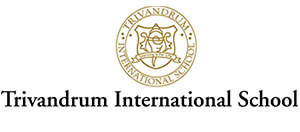Extracurricular activities, particularly sports, have been gaining increasing recognition for the holistic role they play in the educational sphere. When it comes to kids, sports act as a powerful tool in enhancing their education, not merely at the scholastic level, but also in nurturing key life skills. Here, we delve into how sports can be instrumental in giving a significant thrust to kids’ education.
Cognition and Learning: The Sporty Connection
Research overwhelmingly suggests that sports positively impact children’s cognitive development and learning capacities. Involvement in sports aids in:
- Enhancing focus and concentration: Physical activity promotes better attention spans, making children more focused in their academic pursuits.
- Improving memory: Regular engagement in sports can stimulate brain function and memory enhancement.
- Boosting problem-solving skills: Sports often require strategic planning, fostering problem-solving skills.
It’s no surprise that these cognitive benefits often translate into better academic performance.
Sports: A Classroom of Soft Skills
Just as important as academics are the life skills that shape children’s personalities. The unique ‘classroom’ of sports offers several essential lessons:
- Teamwork: Sports teach children the importance of working together to achieve a common goal.
- Discipline and commitment: Regular practices and matches instil a sense of discipline and commitment.
- Leadership: Sports provide opportunities for kids to lead, nurture decision-making skills, and boost their confidence.
Such skills are not only beneficial for personal growth but also highly sought after in the professional world.
Physical Fitness: A Step Towards Better Learning
Active children are healthier children. And healthier children are better learners. Regular sports engagement can:
- Improve physical fitness: Enhancing stamina, flexibility, and strength.
- Promote a healthy lifestyle: Encouraging balanced diet choices and routine exercises.
- Boost mood and energy levels: Physical activities release endorphins, the feel-good hormones, leading to a more energised and positive learning environment.
Resilience: The Game Changer in Life
One of the most valuable lessons children gain from sports is resilience. It builds a sense of:
- Persistence: Kids learn the crucial skill of trying again after a failure or setback.
- Stress management: Sports provide a healthy outlet for kids to vent their stress, resulting in a more balanced emotional state.
- Handling pressure: Regular competitive environments in sports help kids cope with pressures in a healthy way.
Children who are resilient often navigate academic and life challenges more efficiently, which can lead to a more successful adulthood.
Conclusion: A Balanced Approach
A balanced blend of academics and sports is crucial for the overall growth of children. Schools and parents should actively encourage sports participation, considering its multifaceted benefits on kids’ education. Despite the potential for injuries or time commitments, the advantages of sports engagement far outweigh the downsides.
In a nutshell, sports can be a significant game-changer in kids’ education, equipping them with improved cognitive abilities, soft skills, physical health, and resilience. Remember, the goal is not to make every child a professional athlete but to imbibe in them the lifelong lessons sports offer. The field or the court is indeed another classroom, often providing lessons that no textbook can.
Remember, sports in education is not about creating athletes, but about using sports as a tool to create well-rounded individuals who will excel not just in their exams, but also in the bigger examination called life.
Embrace sports, enhance education, and empower our future generation.



